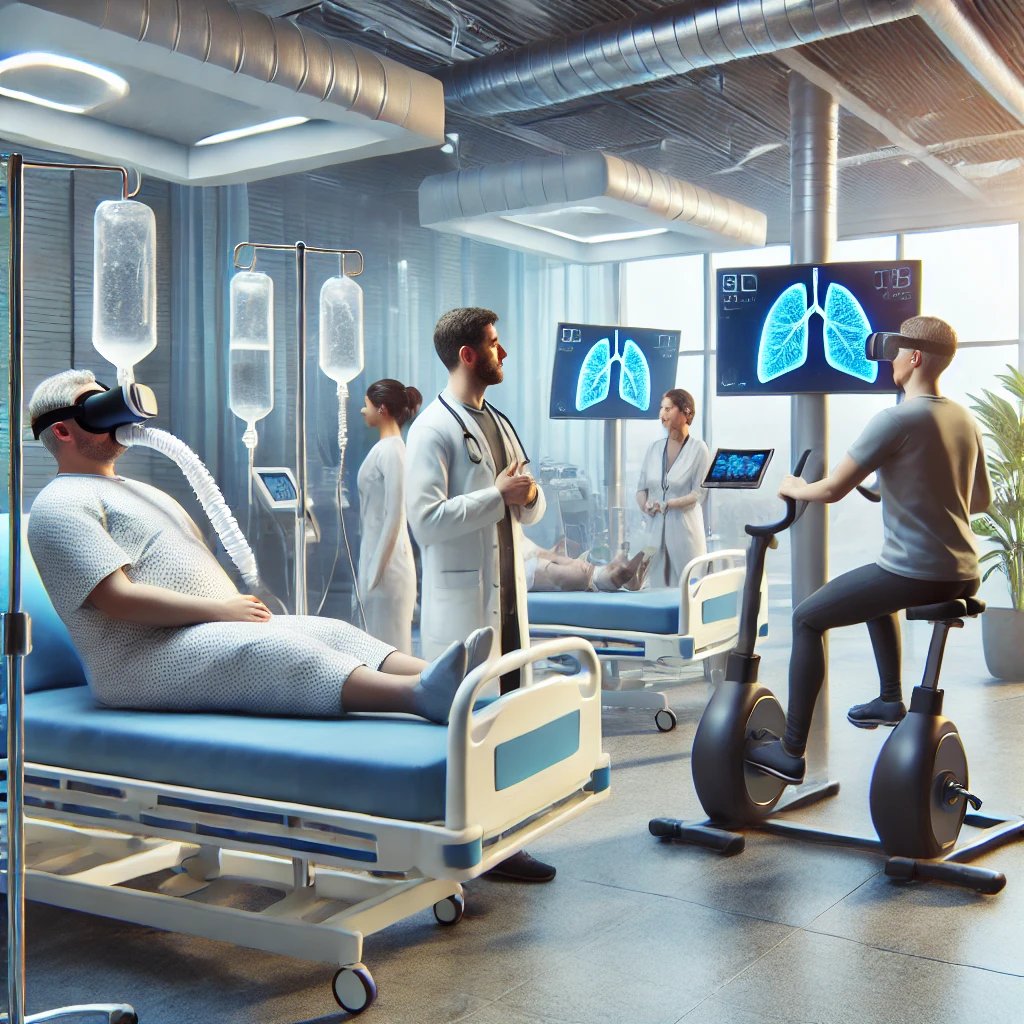Innovation
The use of VR-based relaxation and exercise programs specifically designed for post-COVID-19 rehabilitation, incorporating elements such as virtual therapeutic environments and interactive physical activities.
Evaluation System
Quantifiable results: Improvements in the 6-minute walk test (6MWT), Hospital Anxiety and Depression Scale (HADS), and quality of life assessments (WHOQOL-BREF).
Presence of comparison group: Yes, a control group underwent traditional rehabilitation without VR.
Assessment
The program was effective in reducing anxiety and depression and improving exercise tolerance. However, no significant improvement was observed in the quality of life, potentially due to the short duration of the study.
References
Rutkowski S, Bogacz K, Czech O, Rutkowska A, Szczegielniak J. Effectiveness of an Inpatient Virtual Reality-Based Pulmonary Rehabilitation Program among COVID-19 Patients on Symptoms of Anxiety, Depression and Quality of Life: Preliminary Results from a Randomized Controlled Trial. Int J Environ Res Public Health. 2022;19(24):16980. Published 2022 Dec 17. doi:10.3390/ijerph192416980








